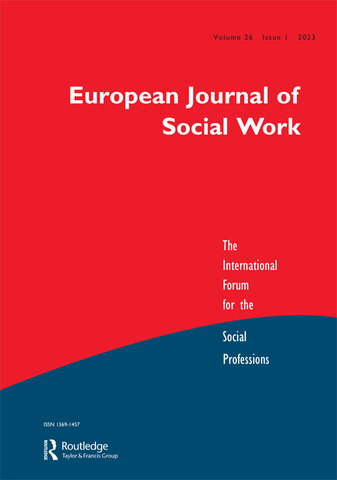Abstract
Decision-making around foster care is a highly complex process, both because of the nature of the issues to be decided and because of the positive or negative implications it may have, mainly on the lives of the children, but also for foster carers and birth families. To focus research on decision-making is to go to the core of the child protection system. The aim of this article is to analyse the factors that intervene in decision-making by childcare professionals regarding non-kin foster care in the north-east of Spain, given that three services intervene throughout this process for the same child. Moreover, coincidences and discrepancies in the weight given to the factors involved in the decision-making process have been analysed.
Firstly, the authors analysed 90 cases of children in foster care assessed by the three services involved, and secondly, we obtained the evaluation made by 57 professionals from 28 childcare teams on general aspects of decision-making. The results highlight how the child’s young age and the likelihood of the birth parents not recovering are factors that play an important role in the decision to propose foster care, thus opening the debate on the current role of foster care within the care system.
Resumen
La toma de decisiones en torno a los acogimientos familiares es un proceso muy complejo, tanto por la naturaleza de los temas a decidir como por las implicaciones positivas o negativas que puede tener principalmente en la vida de los niños, pero también para los acogedores y familias de origen. Centrar la investigación en la toma de decisiones es ir al corazón del sistema de protección. El presente artículo quiere analizar los factores que intervienen en la toma de decisiones de los profesionales en lo que se refiere a los acogimientos en familia ajena en el noreste de España, teniendo en cuenta que son tres los equipos profesionales que intervienen a lo largo del proceso sobre un mismo niño o niña. Además, se analizan las coincidencias y discrepancias por lo que se refiere al peso que otorgan a los diferentes factores relacionados con la toma de decisiones.
Por un lado, se han podido analizar 90 casos de niños y niñas en acogimiento valorados desde los tres equipos, y por otro se ha obtenido la valoración de 57 profesionales de 28 equipos sobre aspectos generales de la toma de decisiones. Los resultados ponen de relieve como el factor de la corta edad y el pronóstico de no recuperabilidad de los progenitores tienen un peso importante a la hora de realizar la propuesta de acogimiento familiar, lo que abre el debate del lugar que ocupan los acogimientos actualmente dentro de los sistemas de protección.

